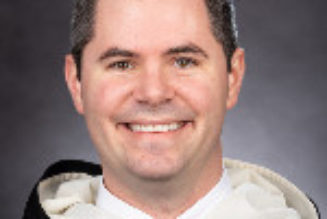By Dr. Jeff Mirus ( bio – articles – email ) | Feb 18, 2022
As our Catholic World News service reported today, “In a major address on priesthood, Pope emphasizes closeness to God, the bishop, other priests, and the people.” I hope it does not surprise readers when I say that they should read the full text of this address, which is about 6,500 words in all, or roughly the equivalent of reading six to seven average-length commentaries on our website.
I make this recommendation because this address of the Pope to open an international theological symposium on the priesthood (organized by the Congregation for Bishops) provides a superlative example of Francis’ strengths in what he includes, and of his weaknesses in what he leaves out. There can be no question that a deeply prayerful closeness to God, a genuine spiritual bond with the bishop, a strong fraternal relationship with other priests, and a warm and merciful closeness with his people are essential to the life of a good priest. And it is precisely these four types of “closeness” which are the subject of the Pope’s address. Moreover, since we are all baptized priests in the universal sense, every lay person should also be able to see the importance of these patterns of “closeness”, and apply them to his or her own life. We must make no mistake about this: Such closeness, in all four aspects, is an essential component of what it means to be not only a priest but a Catholic.
Nor is this primarily an affective closeness. The Pope describes it in a profoundly spiritual way which we should all take to heart. At the same time, however, even in such a beautiful reflection, Pope Francis seems unable to offer any concrete assistance to priests (or laity) in the matter of distinguishing between a genuine spiritual closeness to others and the impressive range of counterfeit claims of closeness which so gravely undermine the mission of the Church in our time. What the address includes is a warm and compelling case for a fruitful priestly spirituality; what it excludes is any practical assistance in discerning those false spirits which, precisely under the claim of genuine closeness with others, seem to render the Church less effectively Christlike more often than not.
False spirits of closeness
The problem is that when we speak of “closeness” we are just as likely, or perhaps more likely, to express that false closeness which is so widespread throughout the world today. Indeed, we live in an age of counterfeit closeness—a closeness which affirms and engages on the basis not of the love of Christ but of the temptations of Satan. Thus do we “accompany others” more often by approving and praising their bad decisions than by trying to draw them into making good decisions. Our dominant culture defines “closeness” as commending every personal departure from the natural and Christian grasp of the good, rather than as making a sacrificial effort, offered out of genuine love, to draw people into a personal commitment to the good.
In our counterfeit closeness, we substitute “approval” for “affirmation”, in both ourselves and others. “Affirmation” requires a genuine personal closeness, which at its best is also a living and dynamic witness to the closeness of Christ, in and through whom each person is of infinite value. Relationships of genuine affirmation help people to grow into a kind of wholesome goodness. “Approval”, however, is often a cold and worthless counterfeit, which requires telling people (perhaps including ourselves) that they are right even if they are wrong, and championing bad causes in order make those who are weak and sinful (perhaps including ourselves) feel more comfortable. Mere approval tends to substitute worldly success for interior growth. In the distinction I am making for the present purpose, we affirm persons to help them recognize their inherent goodness and strive to perfect it; but we approve behaviors in accordance with a whole range of objectives—objectives that ought to be carefully examined and properly understood.
This problem is endemic to the world, aided and abetted always by the flesh and the devil. Unfortunately, it is characteristic of the rhetoric of Pope Francis that he emphasizes so many theoretically good attitudes or dispositions while almost never offering the kind of analysis for which the founder of his Jesuit Order was so well known, namely the discernment of spirits. The result is that Pope Francis often says good things if we are able to interpret them in the right spirit. But if we interpret them instead in the spirit of the world, and of the contemporary culture so prominent in both the world and the Church herself, we will confuse acceptance (or even secret approval) of sinful patterns of life with genuine personal affirmation almost every time.
We will, in short, confuse the acceptance of the fashions of this world with a genuine response to grace. And because our world now does everything while speaking loudly of openness and inclusion, we will confuse the worldly closeness of being in the right group with the Christian closeness of doing the right thing. We will confuse, in other words, the approval of “those who matter” with the peace of Christ.
Meditation and prayer
Please note that nothing I have written here even remotely justifies a position of mere canonical propriety or mere adherence to revered traditions or even mere orthodoxy. It really is not enough for us to isolate ourselves within the “right” group in order to avoid the tensions and discomforts of a genuine love for others. If we do not first admit that we, too, are sinners—if we do not first recognize that even being right about many important things can be a snare and a stumbling block—then I am afraid we are deaf to the admonition of Luke 4:23: “Physician, heal thyself.” I well know how easy it is to talk the talk, how hard to walk the walk—how easy it is to tell others how to understand everything, how hard it is to live as if I understand it myself.
To the contrary, I would suggest that even the most noisy of those of us who try to clarify such things tend not to offer as good a pattern of Christian life as the many quieter Catholics who express their faith with far less fanfare, in lives of closeness to God, bishop, priests and neighbors, without blowing a trumpet or brandishing a sword—or even (which is perhaps even more dangerous) without writing a thousand words for a Friday afternoon deadline. This alone makes me at least a trifle nervous in recommending something Pope Francis has said while at the same time assuring readers that I really do understand the distortions in the bigger picture.
But life is like that: We must learn from everything good, and then learn it even more deeply and precisely in prayer, study and reflection, through our own growing relationship with Christ and His Church. Let us, then, learn something both of closeness and its counterfeits, so that we might genuinely abide in the true and the good. Let us decide in the midst of those we serve, just as St. Paul decided, “to know nothing except Jesus Christ and him crucified” (1 Cor 2:2). Then we will remain close not to the world but to Him who has promised to remain close to us “always, even to the end of time” (Mt 20:28).
Sound Off! CatholicCulture.org supporters weigh in.
All comments are moderated. To lighten our editing burden, only current donors are allowed to Sound Off. If you are a current donor, log in to see the comment form; otherwise please support our work, and Sound Off!

There are no comments yet for this item.
Join Our Telegram Group : Salvation & Prosperity










